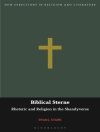Ecological Form brings together leading voices in nineteenth-century ecocriticism to suture the lingering divide between postcolonial and ecocritical approaches. Together, these essays show how Victorian thinkers used aesthetic form to engage problems of system, interconnection, and dispossession that remain our own. The authors reconsider Victorian literary structures in light of environmental catastrophe; coordinate “natural” questions with sociopolitical ones; and underscore the category of form as a means for generating environmental—and therefore political—knowledge. Moving from the elegy and the industrial novel to the utopian romance, the scientific treatise, and beyond,
Ecological Form demonstrates how nineteenth-century thinkers conceptualized the circuits of extraction and violence linking Britain to its global network. Yet the book’s most pressing argument is that this past thought can be a resource for reimagining the present.
Table des matières
Introduction : Ecological Formalism; or, Love among the Ruins
Nathan K. Hensley and Philip Steer, 1
Part I Method
1. Drama, Ecology, and the Ground of Empire: The Play of Indigo
Sukanya Banerjee, 21
2. Mourning Species: In Memoriam in an Age of Extinction
Jesse Oak Taylor, 42
3. Signatures of the Carboniferous: The Literary Forms of Coal
Nathan K. Hensley and Philip Steer, 63
Part II Form
4. Fixed Capital and the Flow: Water Power, Steam Power, and The Mill on the Floss
Elizabeth Carolyn Miller, 85
5. “Form Against Force”: Sustainability and Organicism in the Work of John Ruskin
Deanna K. Kreisel, 101
6. Mapping the “Invisible Region, Far Away” in Dombey and Son
Adam Grener, 121
Part III Scale
7. How We Might Live: Utopian Ecology in William Morris and Samuel Butler
Benjamin Morgan, 139
8. From Specimen to System: Botanical Scale and the Environmental Sublime in Joseph Dalton Hooker’s Himalayas
Lynn Voskuil, 161
9. “Infi nitesimal Lives”: Thomas Hardy’s Scale Effects
Aaron Rosenberg, 182
Part IV Futures
10. Electric Dialectics: Delany’s Atlantic Materialism
Monique Allewaert, 203
11. Satire’s Ecology
Teresa Shewry, 223
Afterword : They Would Have Ended by Burning Their Own Globe
Karen Pinkus, 241
Acknowledgments 249
List of Contributors 251
Index 253
A propos de l’auteur
Philip Steer is Senior Lecturer in English at Massey University. His current book project is “Borders of Britishness: The Novel and Political Economy in the Victorian Settler Empire.”












